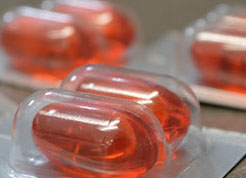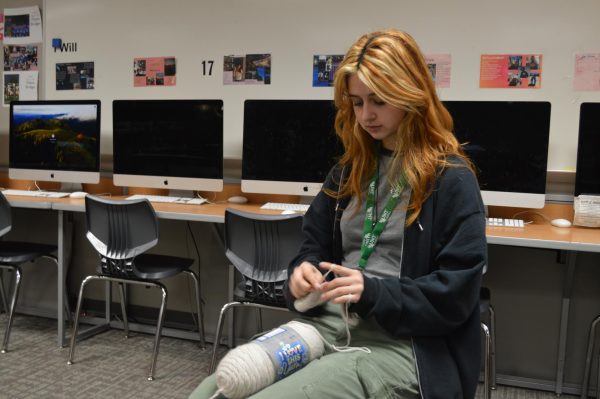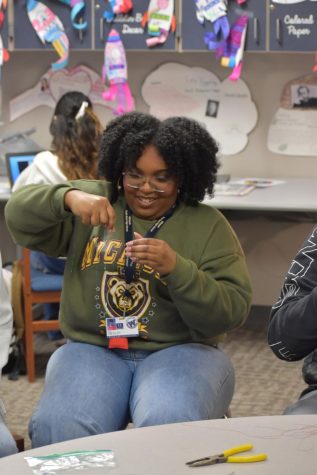Cough, cold, congestion… corruption?

photo credit: Jessica Blakeley
One of many \\ Popping pills for a lasting high, underclassmen are abusing several different types of over-the-counter cough medicines.
March 4, 2016
Underclassmen abuse cough medicines
This story was selected for Best of SNO, School Newspapers Online.
In an English I classroom in the middle of the year, a girl asks her teacher to go to the bathroom. A few minutes later, the girl’s friend asks to go as well. What have may once been an innocent gossip session in the hall has become a much more dangerous trend, one including the ingestion and distribution of pills. A slang term for the over-the-counter medication Coricidin HBP Cough and Cold, Triple C’s have become increasingly popular among the youth for their high.
“It has been going on for a long time. However, it has been increasing in usage,” assistant principal Janet Wyatt said. “We have seen it more with freshmen and sophomores.”
I heard underclassmen have been popping pills like they’re candy. They steal them from Wal-Mart.
— Peyton May, senior
The normal dosage for adults with symptoms is one to two pills at a time, but students have been known to ingest full packages or bottles of the pills.
“All medicines, whether prescribed or over the counter, must be turned in to the nurse,” Wyatt said. “Students are not allowed to carry medicine on their person. CCCs can cause serious damage to one’s health.”
If a student is caught with the pills, taking them, or distributing them, they will face Disciplinary Alternative Education Programs, or DAEP, and possible criminal charges.
A person must be 18 to purchase the cold, cough and congestion medication.
“I heard underclassmen have been popping pills like they’re candy,” senior Peyton May said. “They steal them from Wal-Mart.”
The high produced varies from person to person based on how an individual’s body reacts. Although the dextromethorphan, or DXM, found in the medicine is proven safe and effective when taken at normal dosages, it can produce dangerous side effects when used more than needed.
“DXM is abused in high doses to experience euphoria and visual and auditory hallucinations. It can cause sensory changes, including the feeling of floating and changes in hearing and touch. It can also lead to confusion, inappropriate laughter, agitation, paranoia, loss of coordination, slurred speech, sweating and high blood pressure,” Nurse Jenny Knowles-Causey said. “The ‘high’ can last four to six hours. Sometimes less, sometimes longer, depending on how much was taken and how the person’s body metabolizes the medication.”
Other side effects include nausea, vomiting, irregular heartbeat, high blood pressure, headaches, abdominal pain, numbness of fingers and toes and loss of consciousness.
Nurse Jenny warns students that messing with over-the-counter drugs can be more dangerous than they seem.
“More than 100 over-the-counter medications are on the market today,” Knowles-Causey said. “These medications often contain additional ingredients that produce additional side effects. High doses of these combination medication can significantly increase the harmful effects such as potentially fatal liver damage, cardiovascular damage, over-sedation, seizures, comas, brain damage and possible death. DXM taken with antidepressants can be life threatening.”












